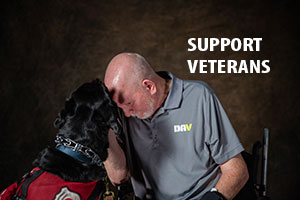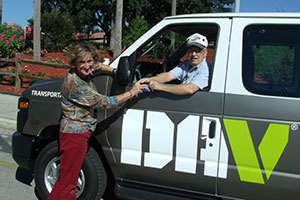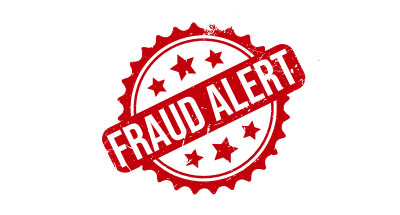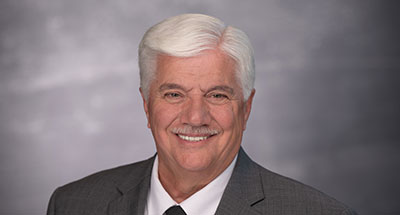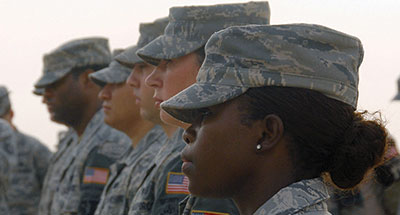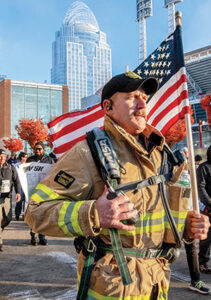Never forgotten
An unfortunate reality of military engagement is that sometimes service members are held against their will as prisoners of war (POWs) or, even worse, their whereabouts become unknown and they are classified as missing in action (MIA).
In fact, while efforts to recover the remains of those individuals lost in action have been ongoing, the Defense POW/MIA Accounting Agency (DPAA) estimates that more than 80,000 individuals never returned home. The locations of these individuals vary, concentrated in areas of the most significant points of U.S. engagement during the 20th century: the Philippines, Solomon Islands, Korea, South Pacific, North Atlantic and throughout Western Europe.
What search and recovery efforts are ongoing?
The responsibility of search and recovery falls primarily on the Department of Defense. In early 2015, two organizations were merged to create a new government group, the DPAA.
The mission of DPAA is “to provide the fullest possible accounting for our missing personnel to their families and the nation.” A list of individuals recently accounted for can be found here.
Among the many online resources provided by DPAA is their section dedicated to the families. FamWeb is designed to keep families updated on current recovery operations, to share personal stories and for the agency to provide general information such as case synopses and battlefield summaries.
How does DAV support these efforts?
DAV has a strong history of advocating on behalf of our nation’s wartime ill and injured veterans. This advocacy also extends to supporting the needs and interests of the families for those who served, including those who have spent decades not knowing the whereabouts of their loved ones or whose loved ones have been physically and emotionally scarred by their service experiences.
DAV recognizes the importance of our involvement in POW/MIA activities and the responsibility we have as a country to ensure the fullest accountability for captured American service members and those listed as MIA. The DAV Interim POW/MIA Committee meets regularly to discuss pertinent information and informs the national organization of actionable issues.
View DAV’s POW/MIA Reference Guide: A Guide to Creating Initiatives and Generating Results.
Every year, DAV convention delegates identify the most important veterans issues of the day and create a set of resolutions designed to improve the lives of veterans throughout the United States. It is through this process that DAV has been making historic strides in protecting veterans’ rights for close to 100 years. From the creation of the forerunner to the Department of Veterans Affairs in the 1920s to caring for the returning heroes from Afghanistan and Iraq, DAV has responded time and again to the changing needs of veterans by ensuring that their voices are heard by our Congress.
At the organization’s most recent national convention in Reno, Nev., members voted to enact the following resolutions pertaining to POW/MIA and their families.
- Resolution No. 030: Expand presumptions for service connection for former prisoners of war.
- Resolution No. 057: Seek the immediate release of any Americans who may still be held captive following any war and the return of the remains of any Americans who died during these wars.
- Resolution No. 269: Support for DPAA.
- Resolution No. 272: Support former prisoners of war slave labor claims against Japanese firms.
- Resolution No. 275: Support renewing discussions for the purpose of restoring U.S. agreements with counterpart nations required to account as fully as possible for unreturned remains of American military personnel.
Read more about DAV Resolutions at https://comm.dav.org/about-dav/legislation/dav-resolutions/.
You can also join our advocacy efforts to support relevant legislation by becoming part of DAV’s Commander’s Action Network at DAVCAN.org.
Additional support and resources
National League of POW/MIA Families: The league’s mission is to obtain the release of all prisoners, the fullest possible accounting for the missing and repatriation of all recoverable remains of those who died serving the nation during the Vietnam War. Voting membership comprises wives, children, parents, siblings, and other close blood and legal relatives of Americans who were or are listed as prisoners of war, missing in action, killed in action/body not recovered (KIA/BNR) and returned American Vietnam War POWs.
National Alliance of Families POW/MIA: The goals of the National Alliance of Families are simple: the return of any alive POWs and accurate accounting of the missing; the recovery and scientific identification of remains; or a reasonable explanation as to why return, recovery or accounting is impossible. Formed in June 1990, their founding members included World War II, Korean War, Cold War and Vietnam War family members frustrated by the U. S. government’s lack of progress on the issue of those missing in action. The alliance is the only family organization to represent families from all wars.
Rolling Thunder: In an effort to boost search and rescue numbers, the veteran organization Rolling Thunder was born. Rolling Thunder is manned by volunteers—many veterans—who are passionate about bringing their brothers and sisters home from war. This organization sends rescue and search missions to different parts of the world in hopes of finding missing service members. This group is also extremely active in educating the public on the statistics of the missing. They have more than 90 chapters throughout the United States as well as overseas.

